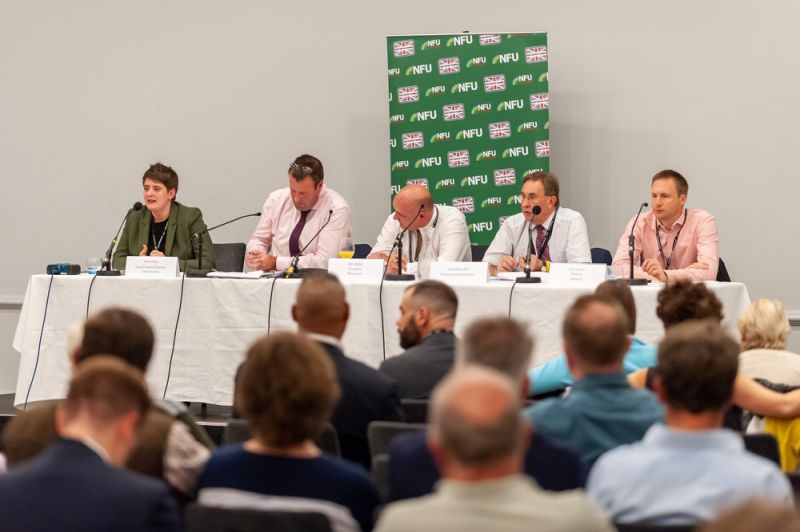Debate held on how Labour can appeal more to rural areas

The shadow farming minister and a senior NFU representative have discussed a range of policy issues for Labour to better connect with rural and farming areas.
The NFU hosted a panel debate at the Labour party conference fringe in Brighton on Monday (23 September).
The event, entitled ‘How can the Labour party appeal to farming areas?’, was attended by almost 100 conference delegates.
It comes as figures show that Labour hold none of the top 50 rural constituencies and only six of the top 100.
And a report published last year shows how Jeremy Corbyn's party still has a way to go to win over rural voters.
It argues that to gain countryside seats Labour needs to be seen as 'a natural party of the countryside'.
The panel broadly agreed that the party needs to perform better in rural seats.
Chaired by NFU Cymru president John Davies, the panel included NFU vice president Stuart Roberts, shadow farming minister David Drew, deputy general secretary of the Fabian Society Olivia Bailey and pollster Joe Twyman.
Overall, a broad range of policy issues were discussed as potential priorities for Labour to better connect with rural and farming areas.
These included a need to improve rural transport, broadband access, affordable housing and tackling rural crime.
On the issue of rural crime, Mr Roberts said farmers need Labour to take rural crime policies 'seriously'.
Rural crime cost the UK £50m in 2018 as brazen criminals continue to target farmers' livelihoods leading to heightened anxiety and rural isolation for many affected.
“It is an absolute joke that rural crime is not taken seriously in this country... locally the cost of penalty for fly-tipping is 25% of the cost of paying for a skip,” Mr Roberts said.
The NFU vice president then spoke about the industry's net zero aspiration for the sector, and of the importance of talking more about food production and not undermining UK producers' standards post-Brexit.
“British beef's carbon footprint is 2.5% lower than the global average... so by switching to British beef you are making a significant contribution to tackling climate change,” he said.
The shadow farming minister, David Drew, spoke about his annoyance at the government’s current lack of an Agriculture Bill.
He later assured the audience that British farming is not only worth being supported, but that farmers need support more than anyone.
Despite a perceived image the party has with farming issues, Labour has in the past highlighted the importance of food production and food security.
The shadow Defra secretary, Sue Hayman, has also said that Labour can be the 'party of farmers'.
Mr Drew also spoke about the importance of getting children and others out on farm, saying it’s everyone’s duty to ensure people understand the importance of food.
“Children learn so much from farm visits... it's our duty to reach out and get people to realise the importance of food.”
The conference debate follows last month's publication of Labour's Animal Welfare Manifesto for Government.
In it, the party reaffirmed its position on the badger cull by pledging a ban on the practice.
Other policy proposals include a ban on the live export of animals and an introduction of mandatory labelling of production and slaughter method.
The NFU will shortly attend the Conservative party conference in Manchester from Sunday 29 September.








